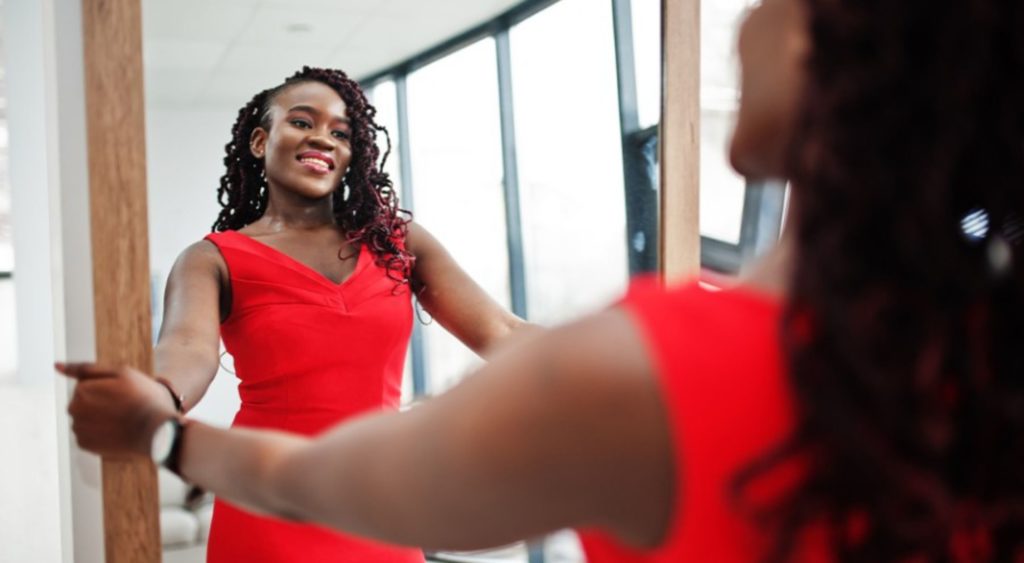Because there is a bias that favours extroversion in the workplace and society, many introverted women don’t embrace their introversion. Early childhood and life experiences may have left them feeling like they were not good enough because they are introverted.
Over the years repeated negative messages regarding introversion have led to them having low self-belief and experiencing self-doubt, imposter syndrome, and lacking in self-confidence. This can be stressful and induce other unhelpful behaviours such as perfectionism, workaholism, putting on a persona, and the feeling that they need to continuously be proving themselves.
Sometimes, with maturity, they come to learn that the best way for them to be is to stop fighting against their introversion, and rather embrace it. It is in doing this that they start to develop a strong sense of self and a recognition that they ARE good enough.
Unfortunately, some don’t get to this place of realisation and continue to go through life not embracing introversion and not being their best self. They continue to experience the undue pressure that this brings. So, whilst they may appear to have very successful careers, beneath the surface, it can feel like a constant struggle. For some, it even leads to burnout.
We need to challenge the narrative
Because there is a wildly held belief that extroversion is the ideal it is necessary to challenge this narrative. This is something that needs to start with children and the way that they are treated in schools.
I had a good conversation about this on the Quietly Visible podcast with Lola Reeves Garay-Abad (link here). Even with all the awareness of recent years that there is an unfavourable bias towards extroversion, children are still encouraged to act and behave in extroverted ways.
A couple of years ago, I did a talk to the children at the primary school I attended as a child. Talking to the headteacher about introversion, he recognised how teachers were doing introverted children a disservice.
He told me that the general school system does not recognise introverted children well enough or appreciate them at all. They talk about developing confidence but mostly measure this by one’s ability to stand up and talk to a room full of people. If a child finds this uncomfortable it is seen as a weakness and something to 'develop'.
He was determined that going forward, as a school, they have a greater awareness of and recognition of all their children. That they don't see the quiet child as someone to fix, but as someone to celebrate and allow to develop in their own way. Imagine the positive impact that this will have on children.
Introversion is often mistakenly confused with shyness
Lola Garay has been a teacher for over 20 years, a teacher coach/trainer for over 10, and a team leader for most of her education career. In all these years she has worked with thousands of people, and educators, who have struggled to express themselves due to the stigma attached to introversion.
She has come to see that introversion, is unfortunately seen as a negative aspect of our personality. It is often looked down upon and confused with shyness and the inability to be entrepreneurial. And in general, leadership is not associated with introversion, as many think introversion means shyness.
She says that shyness is a behaviour that does get in the way of expressing ourselves and does not allow us to show our leadership skills, but that can be coached, and we can build consciousness around it to be able to make our voices heard.
As a team lead, being in a management position and being introverted, one of the main things Lola has to thank her introversion for is the ability to LISTEN actively, to pause and actually LISTEN to the needs of the people she works with.
Being an introverted woman herself, and having such stigma very present in her mind, has, at times, made her feel that her voice was not as valid as the voice of an outspoken extroverted person. She also sees it in the many classes she observes and coaches, in which extroversion is praised but introversion is diminished.
She says that as educators, it is important to know the difference between shyness and introversion. It is also important to help introverted students understand themselves, and create learning environments in which introversion is respected, which will help eradicate the stigma around it.
Embracing introversion can feel like a weight lifted off your shoulder
Whilst some of you may not have received the kind of nurturing that enabled you to embrace introversion when you were growing up, it is not too late for you to embrace your introverted qualities and see them for the strengths and superpowers that they are.
When you do this, it can feel like a weight lifted off your shoulder. It is freeing and empowering when we can be our authentic selves. When we are our authentic selves and utilise our strengths, we are naturally more confident, more motivated, and perform at our best. Plus, it is better for your overall well-being.
So, embrace your introversion and watch your self-confidence levels soar.
Have you embraced your introverted strengths and seen them for the superpowers that they are? Or are you still on the journey to get there?
First published on LinkedIn.
If you are an introverted woman and a senior leader and want to increase your confidence, influence and impact, take my free assessment and get a report identifying areas to develop. You can take the assessment here.

